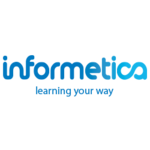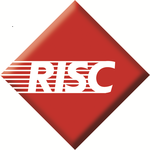Yes, most current Learning Management Systems (LMS) are designed to be available from a variety of devices and platforms. This implies that customers can access the system from their desktop computers, laptops, cellphones, and tablets, regardless of the operating system they use. LMS also feature responsive designs, making them simple to use and navigate across various screen sizes. Users benefit from a seamless learning experience, as they may use the LMS at any time and from any location.
List of 20 Best Learning Management System
ISOtrain is a learning management system tailored to meet the training needs of regulated industries. With its seamless integration, automated reporting, and mobile accessibility, ISOtrain is the perfect solution for compliance and efficient training...Read More ISOtrain
Classpro is a online teaching solution for coaching institutes. Seamlessly create and monetize courses, collect payments, conduct live lectures, assign tasks, and conduct mock tests, all within your own branded app. Trusted by over 1000 coaching clas...Read More Classpro
Prosperity is a software that is revolutionizing the industry with its cutting-edge technology, delivering exceptional results. Experience unmatched levels of efficiency and success with our innovative approach, streamlining operations and propelling...Read More Prosperity
ePILOT is a eLearning solution tailored for the oil and gas industry. Boasting a comprehensive library of over 1400 hours of training material, this platform meets the unique demands of the sector. From ensuring compliance to fostering a highly skill...Read More ePILOT
eLearning Courses LMS solution for creating, managing, and delivering engaging e-learning content. With advanced course development tools, seamless SCORM integration, and efficient progress tracking for learners, this platform takes online training t...Read More eLearning Courses LMS
SDMS V Staff Development solution for streamlining employee training and growth. With its user-friendly training modules, real-time progress tracking, and comprehensive reporting features, this software empowers your workforce and increases productiv...Read More SDMS V Staff Development
YouTestMe GetCertified is a versatile software ideal for corporate and government use. It includes essential features like training modules, knowledge assessment, surveys, and certification. The software is easily deployable on both on-premises virtu...Read More YouTestMe GetCertified
Blackboard Learn by our company is a learning management solution designed to improve the overall quality of education. With its easy-to-use interface, it provides a supportive environment for students and teachers. Our platform includes features suc...Read More Blackboard Learn
RAPTech is a top provider of Learning Management System (LMS) solutions, focused on helping organizations move their content to an online platform. Our customizable solutions can be seamlessly integrated to meet the specific needs of your business. W...Read More RAPTech
Informetica LCMS is a advanced learning content management system that revolutionizes the way organizations handle training. Packed with cutting-edge features, our platform ensures maximum productivity and impact by providing personalized and dynamic...Read More Informetica LCMS
CleverGround LMS is a EdTech platform designed to enhance the digital capabilities of Educational Institutions of any scale. Our all-in-one centralized Learning Management System empowers you to effortlessly deliver courses across multiple centers. S...Read More CleverGround
ATutor - a versatile and customizable Learning Management System (LMS) designed to meet the needs of educators in creating and managing online courses effortlessly. Built as an open-source platform, it fosters collaboration among users and allows for...Read More ATutor
Olive LMS is a Learning Management System created specifically for CBSE Schools. This all-inclusive tool offers extensive support for teachers, parents, and students, simplifying education-related responsibilities and offering a user-friendly interfa...Read More Olive LMS
Edukit is a software designed specifically for schools, colleges, coaching institutes, and tutors. This all-in-one solution seamlessly integrates School Management (ERP), eLearning (LMS), Website and Blog (CMS), and marketing operations, making it ea...Read More Edukit
GoGuardian - the premier learning management solution. Seamlessly manage and categorize your educational resources while utilizing cutting-edge AI technology for monitoring. Safeguard your files with anti-theft measures based on geographical location...Read More GoGuardian
GoSkills is a LMS and LXP that equips businesses with a unified platform for creating and delivering engaging learning experiences. By providing a wide range of powerful tools, GoSkills simplifies the management of training programs and boosts employ...Read More GoSkills
Dokeos is a Learning Management System that caters to regulated industries. It provides a variety of customizable online training, evaluation, and certification options. The Dokeos Live feature makes it effortless for users to host webinars and acces...Read More Dokeos
Digiexam is the most trusted and preferred online exam platform that prioritizes security, reliability, and privacy for academic integrity. Our advanced technology is tailor-made to handle your important exams with utmost protection. With our focus o...Read More Digiexam
RISC solution for streamlined and efficient learning compliance. Our cutting-edge Virtual Training Assistant provides rapid setup, detailed tracking, and unmatched customer service, simplifying compliance for your organization. Thanks to seamless int...Read More RISC
EZ LCMS is a Learning Management System that caters to all your training needs. This affordable and intuitive cloud-based solution has been trusted by over one million delighted customers for its easy-to-use interface and comprehensive features. Simp...Read More EZ LCMS
Learn More About Learning Management System
- What Is Learning Management System?
- What Are The Recent Trends In Learning Management System?
- Benefits Of Using Learning Management System
- Important Factors To Consider While Purchasing Learning Management System?
- What Are The Key Features To Look For In Learning Management System?
- Why Do Businesses Need Learning Management System?
- How Much Time Is Required To Implement Learning Management System?
- What Is The Level Of Customization Available In Learning Management System?
- Which Industries Can Benefit The Most From Learning Management System?
- Conclusion
What Is Learning Management System?
A Learning Management System (LMS) is a software platform that enables enterprises and institutions to manage, deliver, and track their training and educational programs. It enables the centralized and coordinated management of e-learning courses, content, and evaluations. One of the primary advantages of an LMS is its ability to accommodate a variety of learning modalities, such as online courses, virtual classrooms, and blended learning, making it a useful tool for both traditional and online education.
It also allows teachers to design and manage course materials, evaluations, and learning activities, making the content more accessible and engaging for students. In addition to organizing and distributing learning materials, an LMS has robust tracking and reporting capabilities. This enables supervisors and instructors to follow learners' progress, evaluate their performance, and indicate areas that may require additional attention. This data can then be used to create data-driven decisions that improve training programs and overall learning results.
Furthermore, a high-quality LMS should have a user-friendly interface and be available from a variety of devices, including PCs, laptops, and mobile devices. Students can access course materials and complete tasks at any time and from any location, which improves the overall learning experience.N When choosing an LMS, check for features like customizable course authoring, automated grading, interactive multimedia tools, and connectivity with other software systems. These features can help to reduce administrative work, boost learner engagement, and deliver a more comprehensive learning experience.
What Are The Recent Trends In Learning Management System?
The educational landscape has changed dramatically in recent years as a result of the extensive use of technology in learning. This has resulted in a major increase in the use of Learning Management Systems (LMS) to support online learning. As a potential buyer, it is critical to stay current on LMS trends in order to make an informed purchasing decision.
These are the most recent LMS trends to keep in mind when looking for the best match for your organization.
1. Mobile Learning: With the proliferation of mobile devices, there is an increasing demand for LMS that are compatible with smartphones and tablets. This allows students to access course materials and complete assignments while on the go, making education more convenient and accessible.
2. Gamification: LMS providers are using game features like leaderboards, badges, and progress tracking to make learning more engaging and enjoyable for students. This trend has been shown to improve student motivation and retention of knowledge.
3. Social Learning: Collaborative learning has grown in popularity in recent years, and LMS increasingly include social elements like discussion forums, chat rooms, and wikis to help students learn from one another. This fosters a sense of community among learners, increases information sharing, and encourages active engagement.
4. Microlearning: Bite-sized, interactive information is replacing traditional long-form courses, making it more engaging and easier for learners to absorb. This approach has grown in popularity due to its efficiency in meeting the needs of students with short attention spans and hectic schedule.
5. Artificial Intelligence: LMS providers are using AI to tailor learning paths to individual students based on their performance, preferences, and learning styles. This leads to a more personalized and efficient learning experience for users.
6. Data Analytics: With the increased importance of data-driven decision-making, LMS now provide robust analytics capabilities for tracking learners' progress, identifying knowledge gaps, and evaluating course performance. This enables firms to continually enhance their training programs and achieve improved learning outcomes.
Benefits Of Using Learning Management System
A Learning Management System (LMS) is a software platform that simplifies and improves the process of providing, managing, and monitoring online learning activities. Whether you are a small business owner, educator, or training professional, using an LMS can provide various advantages to your organization.
We will look at the primary benefits of utilizing a Learning Management System and how it can help you reach your learning objectives.
1. Centralised Learning Management: One of the most significant advantages of adopting an LMS is that it offers a unified platform for organizing all of your learning activities. An LMS allows you to develop, save, and deliver all of your courses and training materials in one location, removing the need for various tools and systems. This centralization saves time and effort while also improving the organization, accessibility, and uniformity of your learning content.
2. Customized Learning Experience: Every learner has a different learning style and speed. An LMS enables you to personalize the learning experience to each individual's needs. You can design tailored learning paths, tests, and content based on the learner's role, knowledge level, or learning objectives. This flexibility and customisation might result in a more interesting and successful learning experience for your target audience.
3. Improved Tracking And Reporting: Another key benefit of having an LMS is the ability to monitor and report on learners' progress. Built-in tracking features allow you to evaluate your learners' completion rates, performance, and engagement, providing vital insights into the effectiveness of your courses. This data can help you plan future courses and make data-driven decisions to improve your training results.
4. Cost And Time Savings: Providing traditional classroom training can be costly and time-consuming. Using an LMS allows you to dramatically decrease training expenditures and save crucial time. An LMS allows you to design and deliver courses online, removing the need for physical classrooms, printed materials, and travel expenses. Furthermore, the automatic functions of an LMS, such as course scheduling, grading, and reporting, can save you hours of administrative time.
5. Scalability: An LMS can meet the learning demands of a small or large team. An LMS can readily scale up or down based on the number of users and courses, making it an affordable alternative for enterprises of all sizes. You may also add new features and integrations as your needs change, ensuring that your LMS can expand alongside your organization.
Important Factors To Consider While Purchasing Learning Management System?
When considering acquiring a Learning Management System (LMS), several crucial considerations should be made to guarantee that you get the best solution for your specific requirements. These criteria include the LMS's features and functionality, pricing and costs, user experience, integrations, and technical support. First and foremost, carefully evaluate the LMS's features and functionality.
Look for features that are relevant to your specific training goals and objectives, such as the capacity to generate and deliver different types of material (e.g., videos, quizzes, simulations), tracking and reporting capabilities, and learner engagement tools. It is also vital to assess the LMS's scalability, as you may need to accommodate more users or courses in the future.
Next, pricing and costs should be thoroughly considered before making a purchase. While some LMS choices may be reasonably priced, they may lack important capabilities that your firm requires. It is critical to examine the long-term value and return on investment of the LMS rather than just the initial expense. User experience is another important thing to consider.
The LMS should be easy to use, intuitive, and visually appealing, as these factors can have a significant impact on learner engagement and uptake. Make careful to test the LMS personally and obtain input from future users to ensure that it fulfills the demands of your company and learners. Additionally, it is critical to evaluate the LMS's interfaces with other systems and applications that your firm may already be using.
This can have a significant impact on the productivity and effectiveness of your training program, as well as the convenience of use for students and administrators. Finally, technical support is an important factor when selecting an LMS. Look for a service that provides prompt and dependable help, whether via live chat, phone, or email. It is also critical that the LMS supplier provides regular upgrades and maintenance to keep the system working smoothly.
What Are The Key Features To Look For In Learning Management System?
When looking for the best Learning Management System (LMS), it is critical to evaluate a number of essential aspects that will ensure a smooth and effective learning experience for both students and teachers. These features should be user-friendly, adaptable, and impactful in order to improve overall performance and satisfy the specific demands of your organization.
Here are the important things you should look for in an LMS.
1. Intuitive User Interface: The first impression of an LMS is critical, and a user-friendly interface may make the learning experience more engaging and pleasurable. For the best user experience, choose an LMS with a clean layout, easy navigation, and responsive design.
2. Information Management: The capacity to post, manage, and organize various types of information, such as videos, papers, and quizzes, is an essential aspect of an LMS. It should also allow for the construction of several learning routes based on the learners' requirements and objectives.
3. Assessment And Progress Tracking: An great LMS should provide assessment and tracking capabilities that allow learners to track their progress and gain useful insights into their strengths and limitations. This feature allows educators to tailor their teaching approaches to each student's individual needs.
4. Communication And Collaboration Tools: Choose an LMS that includes discussion boards, live chats, and group activities. These tools encourage interaction among students and instructors, improving the overall learning experience.
5. Mobile Compatibility: With the rise of e-learning, it is critical to select an LMS that works with mobile devices. This feature allows students to access course materials from anywhere, at any time, making studying more accessible and flexible.
6. Gamification: Gamification in an LMS can dramatically boost learner engagement and motivation. Look for elements such as badges, points, and leaderboards to make learning more enjoyable.
7. Customization And Branding: An LMS that allows you to brand the platform and modify the content to your individual requirements is essential. This tool will assist you in developing a one-of-a-kind learning experience that is consistent with the goals and values of your organization.
8. Reporting And Analytics: The capacity to track and assess learners' progress, as well as the course's effectiveness, is critical. Look for an LMS with strong reporting and analytics capabilities that can help you calculate the return on investment (ROI).
9. Integration And Scalability: Ideally, an LMS should interact effortlessly with other tools and systems, such as HR software and virtual classroom platforms. Furthermore, it should be scalable enough to handle an expanding number of learners as your firm expands.
Why Do Businesses Need Learning Management System?
A Learning Management System (LMS) is a software platform that enables businesses to manage their training and educational requirements. An LMS provides a centralized and effective solution for all learning and development activities, including onboarding new employees and upskilling existing ones. But why does a firm require an LMS?
Let's go deep and find out.
1. Streamlined Training Process: Manual training techniques can be time-consuming and error-prone when dealing with a large number of employees and training programs. An LMS streamlines the whole training process, from course creation and enrollment to progress tracking and reporting. This not only saves time, but also assures that training is delivered consistently and accurately.
2. Easy Access To Training Materials: An LMS serves as a centralized repository for all training materials, including presentations, papers, and videos. This implies that employees may access training materials at any time and from any location, which is ideal for remote and scattered teams. Furthermore, modifications to the training materials may be made instantaneously, ensuring that personnel have access to the most recent knowledge.
3. Customised Learning Paths: Not all employees require the same training. An LMS enables firms to develop personalized learning paths for various job positions and levels, ensuring that employees receive the appropriate training for their job requirements. This not only enhances training efficacy, but also increases employee engagement and motivation.
4. Effective Progress Tracking: An LMS tracks employees' development in real time, giving employers with vital information about employee performance. This information enables firms to detect knowledge gaps, evaluate the effectiveness of training, and make necessary modifications. Furthermore, progress tracking allows firms to assess their employees' progress and identify top performers for potential career progression chances.
5. Cost And Time Savings: Businesses can save considerable amounts of money and effort by implementing an LMS. Businesses can save money by automating the training process and removing the need for in-person training sessions. Furthermore, an LMS allows employees to study at their own pace, saving time away from work and enhancing productivity.
How Much Time Is Required To Implement Learning Management System?
The time required to build a learning management system (LMS) varies according to the platform and the organization's requirements. However, on average, the implementation phase can take between 4 and 12 weeks. The first stage in deploying an LMS is to undertake a detailed needs analysis to identify the organization's system goals and objectives.
This process can take 1-2 weeks and includes obtaining feedback from key stakeholders as well as defining any specific features or functionalities required for the LMS to match the organization's needs. Next, the organization must choose and purchase an LMS that meets their needs and budget. This can take between one and four weeks, depending on the platform's complexity and the organization's decision-making process.
Once the LMS has been chosen, the implementation phase can begin. This often includes installing the system, moving any existing data or content, and tailoring the platform to the organization's branding and requirements. The time of this process varies, but it often takes 2-6 weeks. After the setup is complete, testing and training will take place to ensure that the LMS is operational and that all users are comfortable using it.
This can take up to two weeks, depending on the size of the company and the number of users that need training. To summarize, the deployment of an LMS can take anywhere from 4 to 12 weeks, depending on the organization's requirements and the platform's complexity. Allow enough time for each stage of the process to ensure a smooth and successful execution.
What Is The Level Of Customization Available In Learning Management System?
The level of customization accessible in a learning management system (LMS) varies by platform, however most LMS solutions provide a high level of personalization. This allows enterprises to customize the LMS to meet their own needs and expectations. First and foremost, LMS customisation comprises elements like as branding, color scheme, and logo positioning that reflect the organization's identity.
This personalizes the learning experience while also providing learners with a sense of continuity. Furthermore, LMS platforms frequently have customizable options for user roles and permissions, allowing varying levels of access and control to be assigned to different users inside the system. This is especially valuable for firms that have several departments and teams with different training requirements.
Furthermore, a well-designed LMS provides customization options for course content. This can involve using movies, graphics, and interactive features to make the courses more interesting and relevant to the organization's training goals. Some LMS alternatives also allow content to be submitted in multiple formats, such as SCORM or HTML5, for more flexibility. Another essential component of LMS customisation is the ability to design personalized learning paths or course sequences.
This enables firms to create a customized learning experience for their employees based on their positions, talents, and learning objectives. Furthermore, certain LMS platforms let you to customize the user interface, including layout, navigation, and language settings. This is especially useful for firms with a global workforce because it provides for a multilingual learning environment.
Which Industries Can Benefit The Most From Learning Management System?
A Learning Management System (LMS) is an effective tool for streamlining and improving training operations in a variety of sectors. Whether you are a huge corporation, a small business, or a non-profit organization, adopting an LMS into your training strategy can offer multiple benefits, including improved employee performance and retention.
The education business, in particular, can tremendously benefit from the use of an LMS. With the growth of online education and e-learning, an LMS can offer educators a centralized platform for creating, delivering, and tracking course contents. It also enables interactive and interesting learning experiences, making it easier for students to comprehend and retain information.
Another industry that can profit significantly from the use of an LMS is healthcare. With tight compliance rules and continuously changing training requirements, an LMS may assist healthcare firms in efficiently delivering and tracking critical training to their staff. It also enables the effective management of certificates and regulatory compliance, lowering the risk of noncompliance and hefty fines.
Companies of all sizes and sectors can benefit from implementing an LMS. It enables the standardization of training materials and assures uniform training across all departments and offices. An LMS can assist enhance employee performance by tracking progress and providing individualized learning paths, which leads to higher productivity and profitability.
Non-profit organizations can benefit from an LMS, particularly for volunteer training and onboarding. It is a cost-effective and efficient way to train and educate volunteers, allowing them to gain a deeper understanding of the organization's vision and values. Additionally, an LMS can help non-profits save time and resources by automating administrative processes related to training and compliance.
Conclusion
In conclusion, selecting the best Learning Management System (LMS) for your firm is a critical decision that necessitates extensive research and consideration of a variety of variables. When comparing LMS choices, it is critical to consider your organization's specific demands, budget, and long-term goals. After analyzing the features, pricing, customer evaluations, and support services of several LMS systems, it is recommended that you reduce your choices to a few standouts.
Following that, it is extremely advantageous to take advantage of free trials or demonstrations to gain hands-on experience with the LMS and assess whether it suits your organization's needs. Remember to examine an LMS's scalability and customisation capabilities, as your organization's requirements may alter and evolve over time. Furthermore, the amount of technical support and training supplied by the LMS vendor should be considered, as it can have a significant impact on the system's success and acceptance within your team.
To summarize, investing in a dependable and effective LMS can greatly improve your organization's learning and development operations, resulting in increased employee performance and overall corporate success. Keep an open mind, critically research your options, and select an LMS that corresponds with your organization's objectives and meets your specific requirements. With the appropriate LMS, you can help your staff reach their full potential and propel your firm to new heights.
Learning Management System FAQ's
Can Learning Management System Be Accessed Across Multiple Devices And Platforms?
Is Learning Management System Future-Proof And Adaptable To Emerging Technologies Like AI, Blockchain Or IoT?
Yes, Learning Management Systems (LMS) are future-proof and adaptable to upcoming technologies like as artificial intelligence (AI), blockchain, and Internet of Things. As the digital world evolves, LMS providers regularly update their systems to include new technology and capabilities.
This enables enterprises to stay current with the newest trends and innovations, hence improving the learning experience for their users. LMS also includes connectors and APIs that make it simple to connect to other platforms, making it adaptable to any new technology that emerges in the future.
Is There A Free Trial Offered To Assess Learning Management System Before Committing?
Yes, many learning management systems provide free trial periods so that people and companies can evaluate their platform before making a commitment. These trial periods normally last 14 to 30 days and allow consumers to study the LMS's features and functionalities. This is a terrific opportunity to make sure the LMS matches your specific requirements before investing in a paid subscription.
Does Learning Management System Offer Data Security Features And Meet Regulatory Compliance Standards?
Yes, Learning Management Systems (LMS) frequently provide data security features like encryption and secure login choices to safeguard critical information. Furthermore, LMS platforms are designed to meet regulatory compliance standards such as HIPAA and FERPA by storing data securely and allowing administrators to manage access. This ensures that confidential data is maintained secure and compliant with industry requirements.
Can Learning Management System Integrate Seamlessly With Existing Tools And Platforms?
Yes, learning management systems (LMS) can work seamlessly alongside existing tools and platforms. Many LMS providers offer interaction with popular programs like Google Drive, Microsoft Office, and social media networks.
This enables for a more efficient learning experience because users can access all relevant resources in one spot. Additionally, LMS providers include APIs that enable for connectivity with proprietary tools and platforms, making it easy to tailor the learning experience to your enterprise.






















